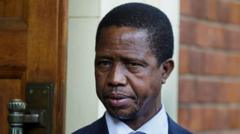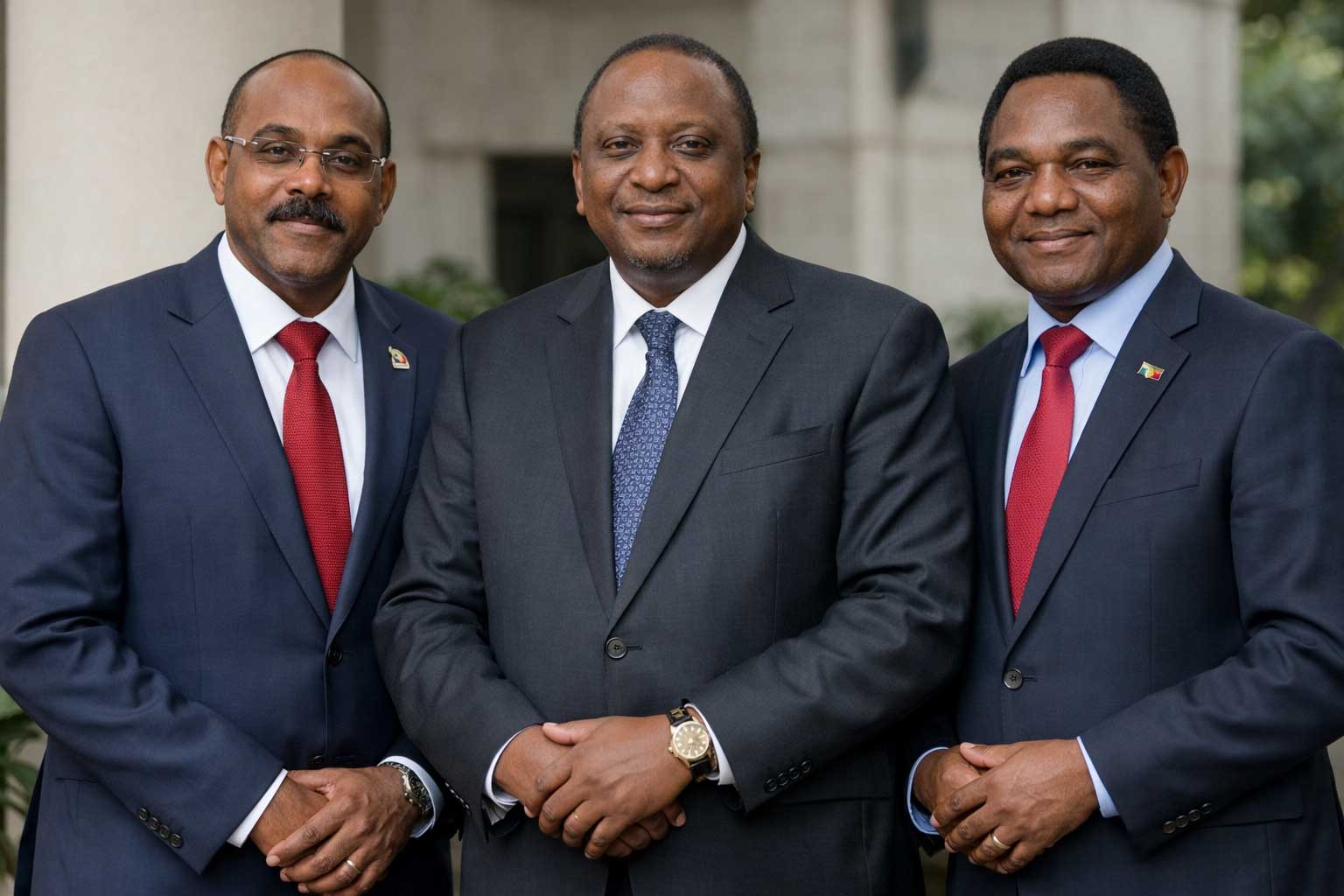The aftermath of former Zambian President Edgar Lungu’s death has transformed into a contentious debate, capturing both grief and fierce political rivalry within the nation. The 68-year-old Lungu passed away two months ago in South Africa after battling an undisclosed illness, leaving behind a divisive legacy that has sparked unrest regarding the arrangements for his funeral.
Recently, a Pretoria court sided with the Zambian government, permitting Lungu's body to be returned to Zambia for a state funeral. This ruling, however, is met with significant resistance from Lungu's family, igniting a public frenzy likened to sports fans declaring “It’s coming home!”—a phrase emblematic of English football. While supporters celebrated the court's decision, it drew ire from Lungu’s family, highlighting the intricate web of political and personal grievances that have surfaced since his death.
Lungu's widow and sister are struggling to assert control over his burial, insisting on honoring his wish that current President Hakainde Hichilema should not participate in the funeral proceedings. This family feud is steeped in a bitter history, with Hichilema previously jailed under Lungu's administration—a fact that still casts a long shadow over their relationship. Disputes were intended to be resolved prior to Lungu’s passing, but tensions erupted as the family voiced their reservations regarding the potential involvement of Hichilema in a ceremony they believe should reflect Lungu’s true desires.
In South Africa, the emotional fallout was palpable when Lungu’s sister lashed out at officials after the court ruling, evidencing the personal trauma involving an already fraught matter. Meanwhile, the government remains steadfast to honor Lungu with a state funeral, an act historically reserved for former leaders. Yet, the lack of legal guidelines about these burials complicates matters further, while authorities are suggesting that they may proceed without the family's consent should the feud continue.
Zambia’s sociopolitical fabric is further strained as accusations of witchcraft arise amid speculation about the government's intentions. Some suggest that the authorities' actions could be influenced by deeper, occult motives, referencing the nation’s prevalent beliefs in witchcraft as added ammunition in an already heated debate.
Experts, such as historian Sishuwa Sishuwa, criticize the government's approach, asserting it exacerbates existing divisions rather than mending them. Sishuwa posits that public perception stems from an assumption that Lungu’s body is being claimed for political rather than compassionate reasons. In view of this complex scenario, other political leaders, such as Nevers Mumba, defend Hichilema’s commitment to a dignified funeral, arguing that the president’s involvement stems from a sense of duty rather than obsession.
As negotiations continue over what many see as a simple wish for a respectful farewell, Zambia grapples with the wider implications of Lungu’s death. The fallout from this situation illustrates not only the political divides that have permeated the nation but also raises questions about dignity, respect, and the right to grief in a politically charged landscape. With the future of Lungu’s body still uncertain, Zambians are left awaiting the next chapter in this deeply divisive saga.





















